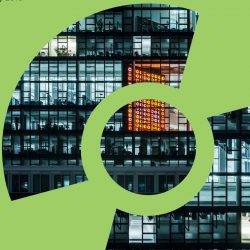July 31, 2018
UK employees no longer incur huge expenses entertaining clients
 Long corporate lunches were once the cornerstone of the corporate expense account, but new figures show just 13 percent of today’s workforce claim expenses for lunch at a restaurant, compared to 36 percent of those in the 1970s and 37 percent in the 80s. The data, released by Barclaycard, also claims that just 10 percent claim dinner at a restaurant with a client on their expenses. This is less than half the proportion who did so in the 1960s (34 percent), 70s (27 percent) and 80s (28 percent). Employees are also less likely to catch up with clients over drinks, with just seven percent regularly footing the bill for a round – approximately a quarter of the proportion who say they did so in the 1980s (27 percent). The expense management process itself has also become more formal, with a clear shift to self-service – almost two-thirds of today’s employees file their own expense claims compared to just over a third in the 1960s.
Long corporate lunches were once the cornerstone of the corporate expense account, but new figures show just 13 percent of today’s workforce claim expenses for lunch at a restaurant, compared to 36 percent of those in the 1970s and 37 percent in the 80s. The data, released by Barclaycard, also claims that just 10 percent claim dinner at a restaurant with a client on their expenses. This is less than half the proportion who did so in the 1960s (34 percent), 70s (27 percent) and 80s (28 percent). Employees are also less likely to catch up with clients over drinks, with just seven percent regularly footing the bill for a round – approximately a quarter of the proportion who say they did so in the 1980s (27 percent). The expense management process itself has also become more formal, with a clear shift to self-service – almost two-thirds of today’s employees file their own expense claims compared to just over a third in the 1960s.











 Sexual harassment in the workplace is widespread and commonplace, with unwanted sexual behaviours such as sexual comments, touching, groping and assault seen as an everyday occurrence and part of the culture in workplaces, and the Government, regulators and employers are failing in their responsibilities to tackle the problem says an influential group of MPs. Employers and regulators have ignored their responsibilities for too long, found the Women and Equalities Committee following a wide-ranging six-month inquiry and often legal protections are not available to workers in practice. The Committee found that despite 40 percent of women and 18 percent of men having experienced unwanted sexual behaviour in the workplace there has been a failure to tackle unlawful behaviours, despite the Government’s obligations under international law. The report calls on Government to focus on five priorities to put sexual harassment at the top of the agenda for employers.
Sexual harassment in the workplace is widespread and commonplace, with unwanted sexual behaviours such as sexual comments, touching, groping and assault seen as an everyday occurrence and part of the culture in workplaces, and the Government, regulators and employers are failing in their responsibilities to tackle the problem says an influential group of MPs. Employers and regulators have ignored their responsibilities for too long, found the Women and Equalities Committee following a wide-ranging six-month inquiry and often legal protections are not available to workers in practice. The Committee found that despite 40 percent of women and 18 percent of men having experienced unwanted sexual behaviour in the workplace there has been a failure to tackle unlawful behaviours, despite the Government’s obligations under international law. The report calls on Government to focus on five priorities to put sexual harassment at the top of the agenda for employers.
























July 23, 2018
New report on the future of work argues we are at an inflection point on the journey
by Mark Eltringham • Comment, Technology, Workplace design
(more…)